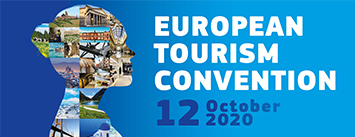European Commission is organizing the European Tourism Convention on 12th October 2020.
The Convention will launch a dialogue on sustainable recovery and the strategic orientations for the tourism of tomorrow and guide future work and cooperation on tourism (towards a European Agenda for Tourism 2050).
Following nine consecutive years of growth, the EU tourism ecosystem is among the hardest hit by the global COVID-19 pandemic affecting Europe since early 2020. The European Commission is organising the European Tourism Convention on 12th October 2020. The Convention will launch a dialogue on sustainable recovery and the strategic orientations for the tourism of tomorrow and guide future work and cooperation on tourism (towards a European Agenda for Tourism 2050).
In the framework of the European Tourism Convention, the European Commission will organise three on-line thematic workshops, which will be held in parallel in the morning of 12th October:
1. Safe and Seamless Tourism Experience,
2. Greener Holidays, and
3. Tourism Powered by Data
The aim of the workshops is to map key issues, generate a discussion about the challenges and opportunities of the EU tourism sector linked with the three topics mentioned above and propose a set of SMART action points to be presented and discussed during the Plenary of the European Tourism Convention in the afternoon.
Each workshop will gather up to 30 participants, including representatives of the EU institutions, representatives of public authorities, European sectorial industry associations of the tourism and travel industry, international organisations, academics, as well as other relevant stakeholders. Places are limited and the selected participants will have a unique chance to guide the future work on tourism recovery and transition. Participants with significant operations in EU countries or serving the EU tourism market will be prioritised.
Selected participants commit to a 3-hour online workshop on the 12th October 2020 (9h00- 12h00 CEST) to engage collaboratively and proactively in a guided discussion on the sustainable recovery of tourism and the actions that can transform and shape the European tourism ecosystem for tomorrow. The submitted Expressions of interest for participating in the workshops will be evaluated according to the selection criteria outlined below:
- Criterion 1: Expertise on the subject matter and contribution to the field.
- Criterion 2: Hold a managerial position at the organisation.
- Criterion 3: Organisation located in the EU, with significant operations in EU countries, or a focus on the EU tourism market.
- Criterion 4: Relevance and adequacy of the proposed contribution to the workshop. Note that responses to criterion 4 of the selected participants may be made public on the Convention website. This will be done in aggregate, without revealing the organisation's name for each response. Criterion 4 entails the following questions
1) What are the three priorities for European tourism for tomorrow, and who are the relevant actors? (Propose an action for each priority).
2) Please provide your vision for the future of the EU tourism sector in the next 10-20 years in relation to the theme of the workshop.
The closing date and time for submitting applications is Thursday, September 17th 2020, 16h00 CEST. Please note that submission after this deadline will lead to the exclusion of the application.
WORKSHOP 1. SAFE AND SEAMLESS TOURISM EXPERIENCE Apply here
The workshop will focus on key issues as well as emerging and future trends concerning a safe
and seamless experience for tourists and travellers. In 2020, business, leisure, and ‘Visiting Friends and Relatives’ tourism have been affected, and the changes in habits and aspirations are obliging private and public actors in the tourism ecosystem to reconsider the services to offer and how to produce them. Seamless travel is “the provision of a smooth, efficient, safe, secure, and enjoyable travel experience from a traveller’s point of origin to a destination, within the destination, and back again.” (OECD, “Safe and seamless travel and improved traveller experience - final report to G20 Tourism Working Group”, Sept. 2020.
Pre-COVID safe and seamless tourism efforts aimed to ensure the security and smooth management of travel flows, the attraction of a larger share of High-Value Travellers at destinations, and the dispersion of travellers’ flows to minimise their environmental and social footprint. Key EU policy areas of seamless travel have revolved around visas, digital traveller identity and biometrics, multimodal transport and connectivity and visitor handling, information, and management. Moreover, prior actions on safe tourism experience at destination revolved around monitoring tourism-associated risks, adopting preventive measures, facilitating assistance to visitors, and developing contactless services or services empowering consumer choice and preferences.
Contributors to the workshop ‘Safe and Seamless Tourism Experience’ are invited to take into account the European Green Deal, the EU Digital Strategy and EU Data Policy, the latest EU travel facilitation measures, and the EU Recovery Plan, which provide support for the modernisation (twin transition to a green and digital economy) and the recovery of the tourism ecosystem. In particular, the workshop focuses on the notions of ‘safety’ and ‘seamless experience’ in tourism, in light of emerging trends during recent years and the COVID-19 pandemic. The discussions may cover a) safe and seamless tourism experience at destination when using local services, b) new services and tourism offer to adapt to consumer demand and growing concerns about hygiene and public health safety (i.e. contactless services, multimodal travel, travel insurance products) and c) emerging trends and consumer patterns for the future.
Ultimately, the discussion's scope is the key challenges, objectives, and actions for a safer, smarter, and more convenient tourism experience.
WORKSHOP 2. GREENER HOLIDAYS Apply Here
For over 20 years, sustainable development has been at the heart of EU tourism policy.
Numerous initiatives have promoted cross-sector collaboration for the integrated development of sustainable transnational tourism products, the mobilization of actors to share knowledge and encourage alliances for sustainable businesses and SMEs, and the enhancement of sustainable destinations through the European Tourism Indicators System and collaborative network projects. In 2020, tourism demand has plunged, with massive booked trips and travel packages cancelled. Early responses focused on drive-to leisure domestic tourism and reevaluating the tourism business models. The EU Tourism ecosystem has an opportunity to rethink its supply offers for a more sustainable and resilient economy. The workshop 'Greener Holidays' will be held in the background of the European Commission’s proposals for an EU economy that places competitiveness closely tied to sustainability, with the European Green Deal, the European Climate Pact, the European industrial strategy, Circular economy action plan, Sustainable and smart mobility strategy and, ultimately, the EU Recovery Plan serving as a roadmap towards green transition. The discussion aims to contribute with concrete ideas to set a long term, sustainable, and innovative recovery of EU tourism. Workshop participants are invited to discuss mechanisms (policies and actions) in the pursuit of shared tourism policy industry goals on; i) how to address structural challenges and avoid known challenges (e.g., overtourism, seasonality), ii) how to accelerate the decarbonisation towards climate-neutrality (e.g., low carbon-intensive and smart mobility), iii) how to encourage new business models for sustainable development (e.g., customer value), and iv) how to stimulate climate change mitigation and adaptation (e.g., SMEs tools). Additional critical priorities are how sustainable innovation (technological, organisational, and social) can become a guiding principle in the recovery, placed at the forefront of the transition to a circular tourism economy; one that embraces a sustainable production of tourism experiences and infrastructures and promotes the necessary behavioural change of consumers and industry workforce for more sustainable consumption (e.g., waste, water, energy, biodiversity). The aim is to strengthen the common understanding of the challenges for greener holidays, and how to address them between public and private actors.
Thus, the topics will be discussed within the framework for multi-stakeholder partnerships, cross-sector collaborations, public-private alliances, and consumer engagement initiatives for coordinated and joint efforts.
WORKSHOP 3. TOURISM POWERED BY DATA Apply Here
The uptake of digital technologies has brought significant transformation to the EU tourism ecosystem in the last decade by disrupting and reconceptualising tourism destinations and businesses, unlocking innovation of products and experiences, and ensuring the competitiveness and smart growth of European destinations. In the post-COVID-19 context, further advances on the digital transition are of utmost relevance as a building block to a more resilient EU tourism and the European economy's relaunching. The changing trends in tourism demand due to travel bans and confinement measures create an opportunity to accelerate, transform, and reshape the sector through digitalisation. The European Commission’s proposals on an EU economy and society fit for a digital age and the EU Recovery Plan.
In continuing with the digitalisation of the broader tourism ecosystem, the discussions on ‘Tourism powered by data’ will focus on how the use of data from the perspective of businesses, destinations and public authorities responsible for the management of tourism will empower the smart and sustainable recovery of tourism in the medium and long term. In particular, the discussion will explore a) the advantages data can bring to tourism destinations, businesses, local communities and travellers, b) how it can facilitate tourism management both at the destination and business level, and c) how it can improve the attractiveness of destinations and enhance the tourism experience. The aim is to strengthen the common understanding of the potential benefits and challenges, and address bottlenecks in the crossborder data flow and data sharing between public and private actors. The discussion will be in the context of the business ecosystem for tourism data management (B2B), the availability of public sector data by businesses (government-to-business – G2B – data sharing), the use of privately-held data by tourism destination (business-to-government – B2G – data sharing), and the sharing of data between public authorities (G2G data sharing) at national, regional or local/destination level.


